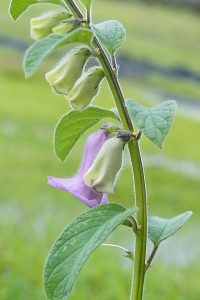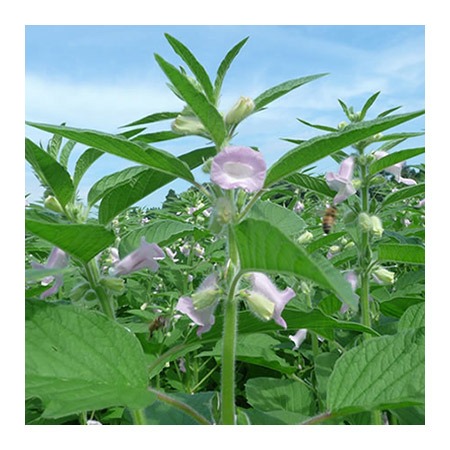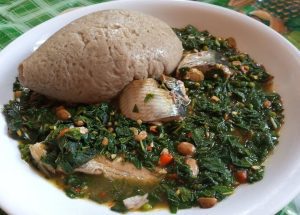Amazing Health Benefits of the Black Sesame Plant (Sesamum indicum nigrum)

Black sesame is the oldest sesame plant variety and belongs to the plant family with the botanical name Pedaliaceae and it shares its genus with the more commonly known sesame (Sesamum indicium).
Black Sesame is cultivated in Africa and India, sometimes it grows wildly. The leaves, both dry and fresh are used to cook soups. In Hausa, it is called Karkashi and the soup from the dry leaves is called Gwalgwal or Lieng toa in the Birom dialect of the people of Jos Plateau other English common names, include benniseed, black benniseed, black sesame, and vegetable sesame.
Health benefits of the black sesame leaves
- Eye Health: They may be used traditionally to treat eye disorders.
- Hair Care: The leaves might be beneficial for maintaining healthy hair.
- Respiratory Health: They can be used as a remedy for coughs.
- Dental Care: There’s a possibility that they could be used for dental issues.
- Pain Relief: They might offer relief from joint pain.
- Anti-inflammatory: They could be effective in reducing inflammation and swelling.
- Nutrient-Rich: They are a good source of calcium, magnesium, phosphorus, copper, manganese, iron, and zinc
- Heart Health: Consuming black sesame seeds may help lower cholesterol and triglycerides, which are risk factors for heart disease.
- Antioxidant Properties: The seeds contain antioxidants that help neutralize harmful free radicals in the body.
- Digestive Health: They are a good source of fibre, which is beneficial for digestive health.
- Protein Source: Black sesame seeds provide plant protein, essential for building muscles and hormones
Medicinal benefits of the black sesame seeds
Black sesame seeds are highly regarded for their medicinal benefits, attributed to their rich nutritional profile. Here are some of the key medicinal benefits:
- Rich in Nutrients: They are a good source of calcium, magnesium, phosphorus, copper, manganese, iron, and zinc, which are essential for various bodily functions, including bone health and immune system support.
- Heart Health: The seeds may help lower cholesterol and triglycerides, which are risk factors for heart disease, due to their healthy fats and plant compounds like lignans and phytosterols.
- Antioxidant Properties: Black sesame seeds contain antioxidants that help neutralize harmful free radicals in the body.
- Digestive Health: They are a good source of fibre, which is beneficial for digestive health.
- Protein Source: They provide plant protein, which is essential for building muscles and hormones.
Including black sesame seeds in your diet can contribute to overall health and well-being. However, consume them in moderation and as part of a balanced diet. If you have any specific health conditions or dietary restrictions, consulting with a healthcare professional before making significant changes to your diet is advisable.
Chemical properties of black sesame plant
More Links
CANCER BUSH (Sutherlandia frutescens)
Locust Beans (Parkia biglobosa)
Breadfruit Plant (Artocarpus altilis)


